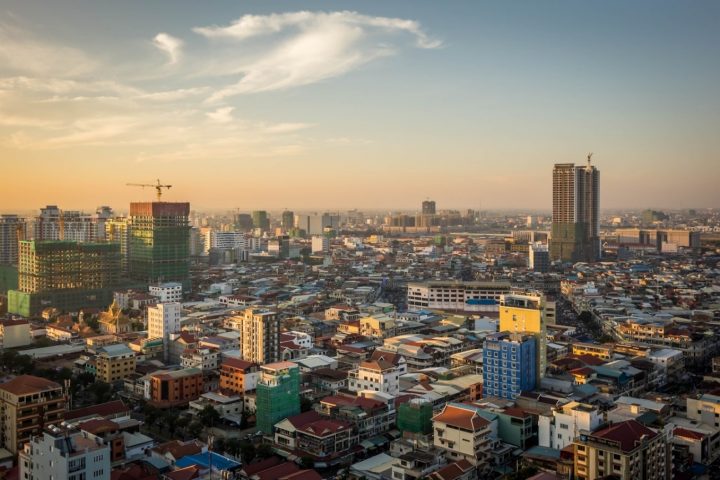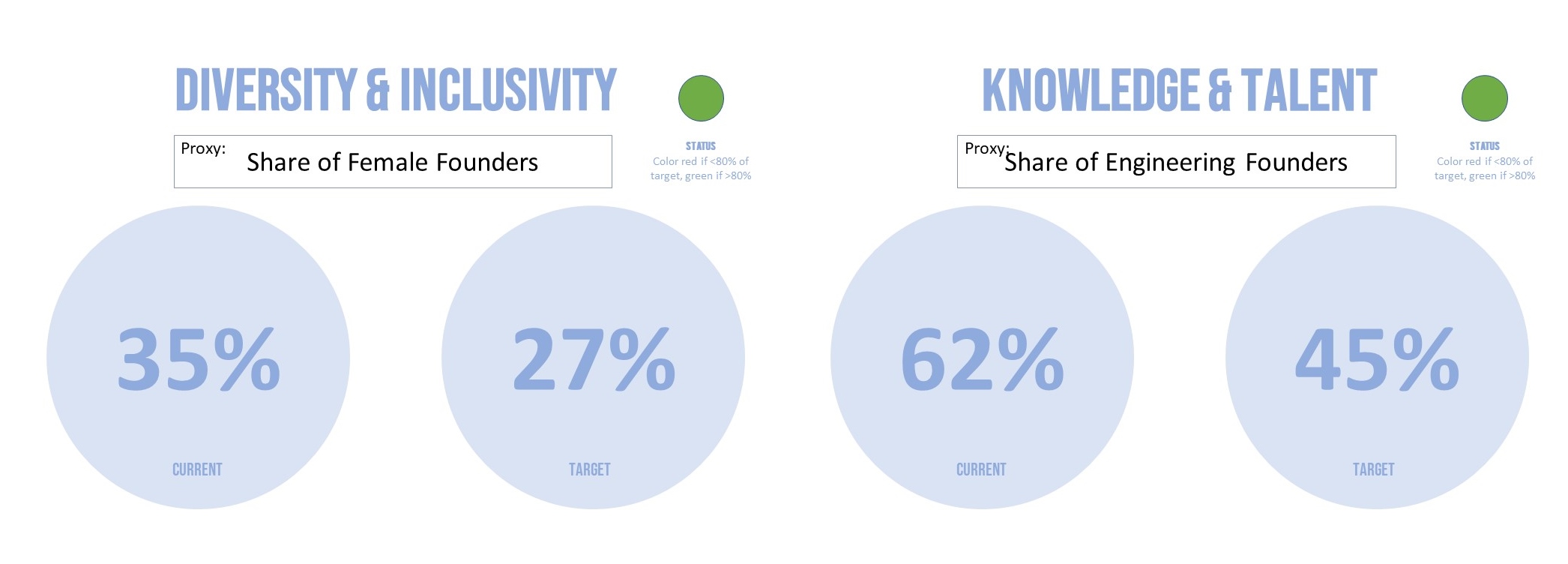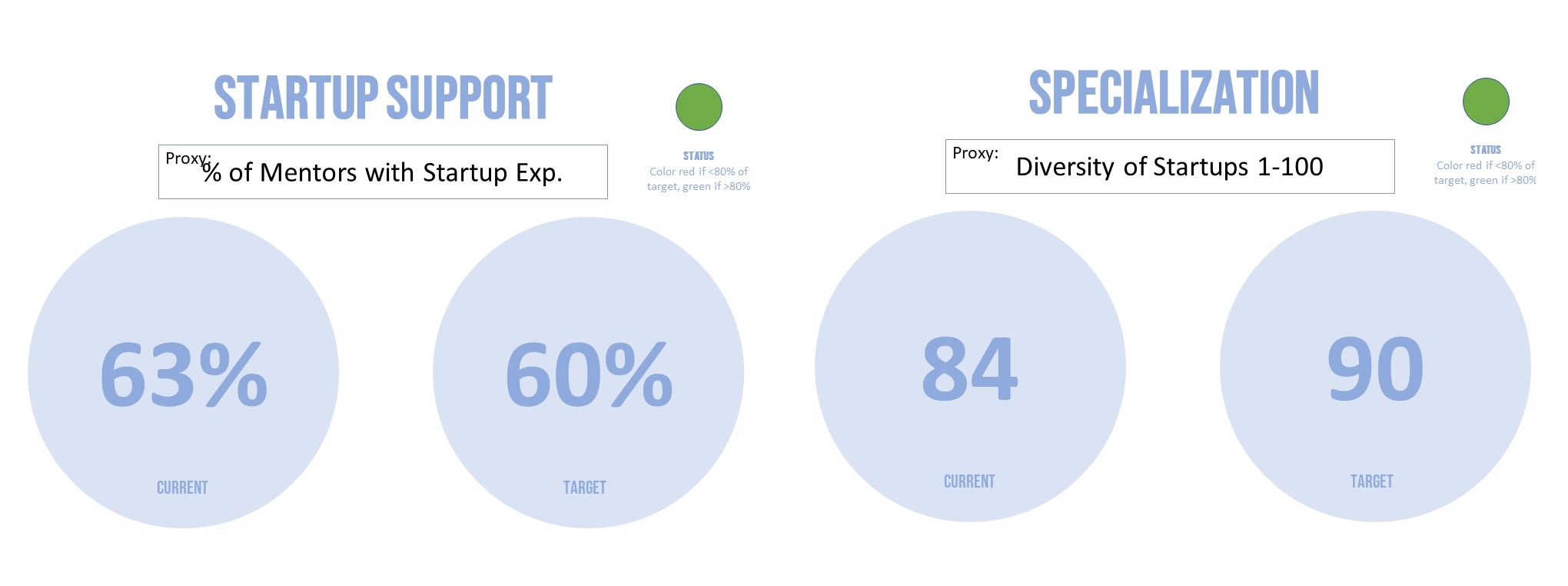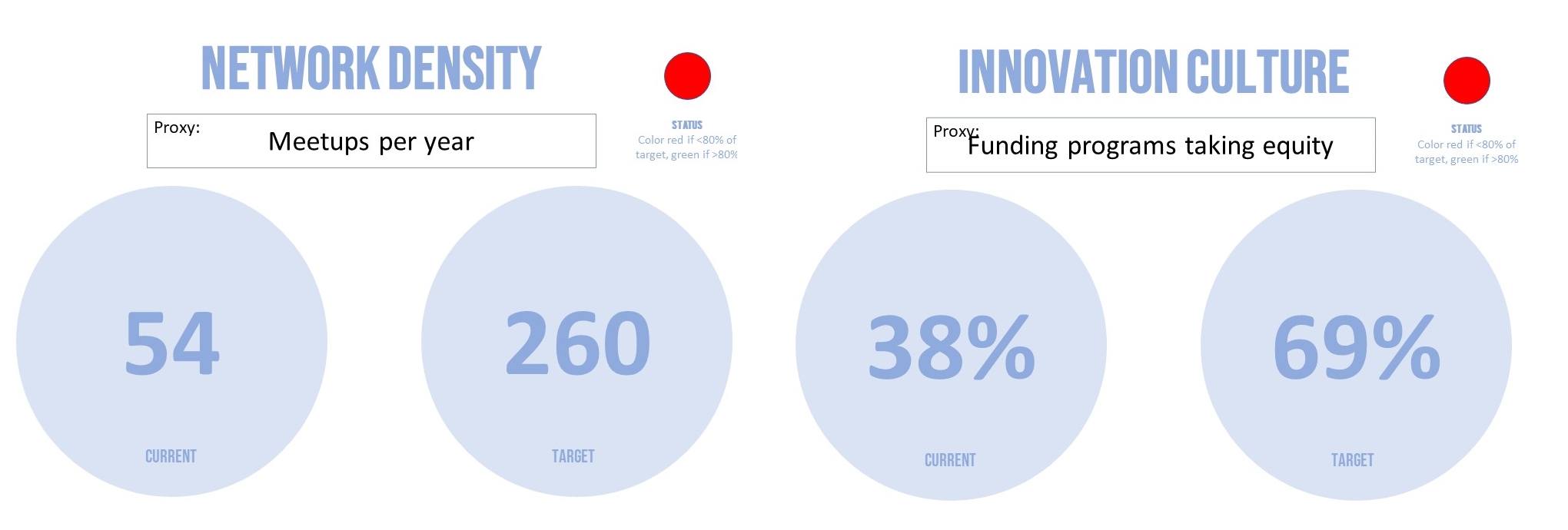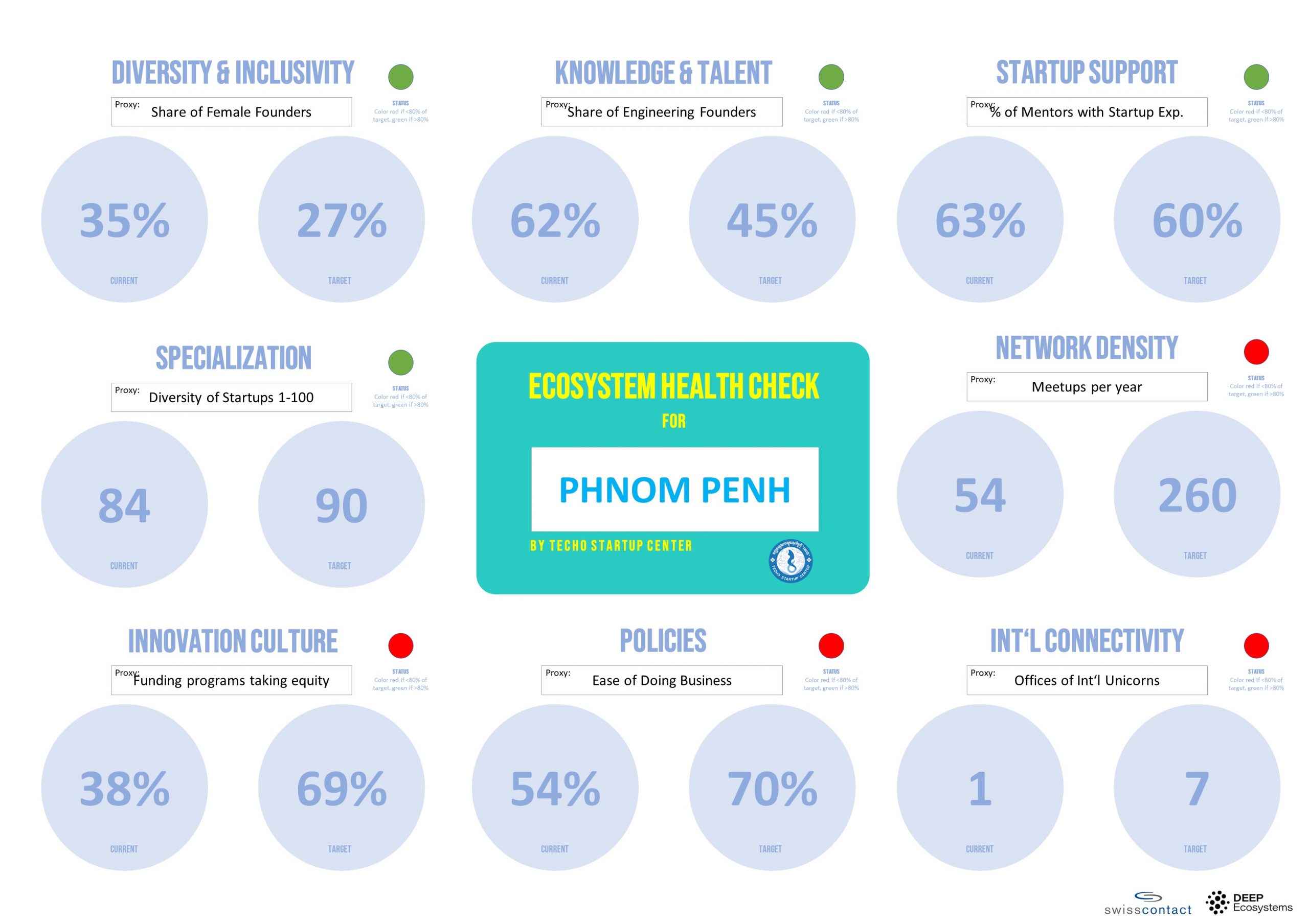Techo Startup Center, Swisscontact, and DEEP Ecosystems team up to analyze Phnom Penh’s Startup Scene
In September 2021 Swisscontact and DEEP Ecosystems collaborated with Techo Startup Center in Cambodia to conduct an “Ecosystem Health Check” as a pilot study on the nascent entrepreneurial startup scene in Phnom Penh. While there have been several projects (here, here, and here) completed to map the different actors and startups in the scene, the Ecosystem Health Check was aimed mainly to answer strategic questions based on existing and secondary data and to give decision-makers a perspective on where to focus their interventions on.
An open tool to empower local ecosystem builders around the world
The Ecosystem Health Check has been developed by Swisscontact and DEEP as a tool to monitor the performance of an ecosystem based on locally adapted indicators.
The framework allows the local community to agree on the most important indicators across 8 pre-defined metrics. These metrics cover everything from talent availability, diversity, startup support programs, network density and community as well as investments and specialization, innovation culture, policies, and international connectivity.
As each ecosystem is different, we wanted to learn from the local stakeholders, particularly in Phnom Penh.
With Techo Startup Center we found a motivated partner, whose team was intrigued to utilize the Ecosystem Health Check tool. Techo Startup Center provided their perspective based on secondary data available on the ground, which is considered enough for the most suitable indicators as well as concrete data points to finally fill the dashboard.
Understand Your Ecosystem
Swisscontact and DEEP Ecosystems have developed the Ecosystem Health Check, a free and self-serving toolkit to empower startup hubs around the world to measure the health of their ecosystems.
However, one shortcoming we encountered was the lack of comparability in the region, due to lack of data or very different economic conditions in South-East Asian countries. We therefore limit ourselves to describe the Cambodian results here and offer various thoughts on potential benchmark data.
1) Community of Entrepreneurs
The two indicators chosen for this metric were the share of female founders in Cambodia as well as the share of tech-skilled founders among startups, covering the metrics of diversity and inclusivity as well as knowledge and talent.
For female founders, the data of the Social Network Analysis (SNA) of Phnom Penh’s startup scene conducted by Swisscontact and Impact Hub Phnom Penh in 2020 offered a large enough sample of founders to determine a reasonable estimate.
35% of founders are female
By focusing only on startups in the ICT sector, the final percentage stood at 35%. This is a relatively high number in our view, as for example a Mastercard Report on female entrepreneurs in 2018 showed that Singapore’s share of female founders stood at 27.5%.
To get an estimate of founders’ tech skills in Phnom Penh, Techo Startup Center analyzed their own network. The team created a small sample of around 30 startups who participated in Techo’s programs, to analyze the percentage of co-founders with an engineering degree.
62% of startup founders are tech-savvy
This is of course not a perfect analysis, but it helps to understand the situation on the ground well enough. And in the future, this data can be collected more regularly.
The number resulted to be 62%, which shows that startups are predominantly driven by techies in Cambodia – whereas top hubs like London or Tel-Aviv, for example, have 29% and 45% tech-skilled founders respectively (Startup Heatmap: CTOs & Tech Co-Founders 2021).
2) Entrepreneurship Support Network
To measure the quality of the startup support network in Phnom Penh, two indicators were selected:
- a) The share of mentors in the local incubators and accelerators who have own startup experience.
- b) The diversity of startups in Phnom Penh based on sectors.
The mentors with startup experience are particularly important for new founders, as they cannot only share business expertise, but also the learnings they had when going through the same journey. Such peer learning opportunity could be offered by a strong 63% of mentors in the analyzed programs, who previously had started their own ventures.
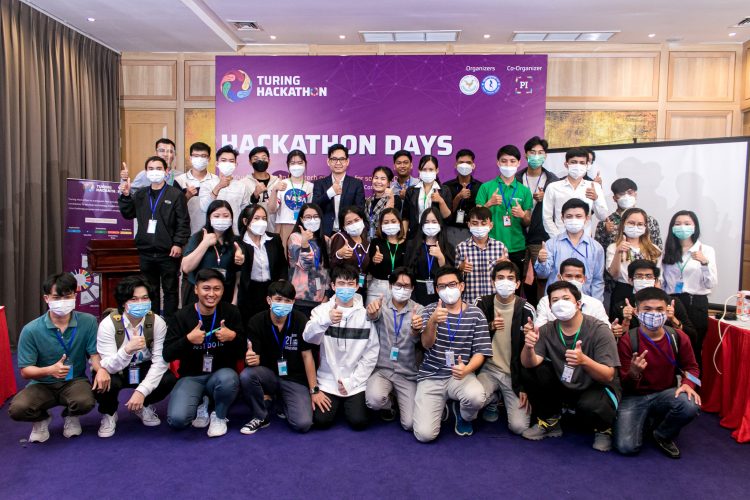
63% of startup mentors are founders themselves
To understand the diversity of startups active in Phnom Penh, the team segmented 200 startups into nine categories ranging from FinTech to AgriTech. It then calculated a diversity index measuring how concentrated or diverse the startups are in above sectors (based on Herfindahl-Hirschmann). On a scale of 100, a result of 0 would mean that all 200 startups fall in one sector, whereas a result of 100 would indicate that they are spread equally across all nine sectors. In Phnom Penh, the data showed a very diverse result with 83.75.
We then compared both of the aforementioned data points with the benchmark data. The resulting numbers for Phnom Penh were in a similar range, which is assumed as a positive result.
3) Community & Network Density
Having founders and mentors is important. But what’s even more important is the fact that they are connected. The network density is what drives serendipity and creativity in an ecosystem. And of course, a culture conducive to innovation is also needed.
To measure these two aspects in a practical way, the team decided to track the number of meetups for tech startups happening in Phnom Penh (both online and offline). To understand the innovation culture in the local context, the most interesting indicator was the percentage of incubators and accelerators that provide funding to startups and in turn ask for a share in the company (equity).
One tech meetup every week
Regarding meetups, Facebook was the prime source of information where the team identified around 1 tech-related meetup happening per week. Top hubs like London see around 200 meetups per week. But for Phnom Penh it would be an achievement if there was one meetup per weekday, setting the benchmark at 5 per week or 260 per year.
In terms of funding programs, the Social Network Analysis (SNA) elaborated by Swisscontact and Impact Hub Phnom Penh in 2020 listed all startup programs. It identified 24 programs in Phnom Penh that provide funding to startups.
Out of these 24, only 9 take equity: 37.5%. This is an essential indicator of innovation culture as it shows the orientation of the ecosystem towards market conditions and risk-taking behavior.
37.5% of startup funding programs take equity
As a potential benchmark, we looked at 209 European accelerator programs on the Startup Heatmap Europe platform, finding that 69% ask their startups for equity.
4) Governance
Finally, the governance aspects were examined, checking whether government policies are aligned with entrepreneurs needs. Two aspects are important here:
- a) Do policies make the lives of startups easier?
- b) Is the government supporting international connectivity and is the ecosystem embedded in international flows of resources and opportunities?
To measure the effectiveness of entrepreneurial policies, we decided for now to look at the Ease of Doing Business ratings by the World Bank for Cambodia in international comparison. Here we see a 54% score, which compares for example to 70% in Vietnam.
One global unicorn with an office in Phnom Penh
In International Connectivity, the indicator chosen was the number of internationally successful startups opening office in Phnom Penh. The base line was a list of over 400 global unicorns and their office locations. Only 1 of them has an office in Phnom Penh so far: The Singapore-founded startup Grab. For comparison, in Ho chi Minh City in Vietnam there are 2 international unicorn offices, while in Bangkok in Thailand there are 7.
Summary: Tech-savvy with room for improvements
Overall, the picture of Phnom Penh’s startup ecosystem in this pilot study is slightly healthy with good foundations in entrepreneurial talent, diversity, and startup mentoring. These indicators show a good potential of the tech-savvy community of entrepreneurs. However, growth is still limited due to other input factors mainly owing to a lack of density and a somewhat low level of innovation culture in Cambodia.
Policies are not yet pushing entrepreneurial activity and, on the international stage, the startup scene could not create much attention yet. This creates a situation in which local ecosystem builders must focus their attention on expanding the ecosystem’s strengths and address the shortcomings systematically.
Initial thoughts go in this direction:
- Encouraging experienced entrepreneurs to not only mentor, but address larger audiences in meetups and create forums for peer learning among founders.
- Involve societal and in particular business stakeholders to experience the creativity and drive of the startup scene to encourage them to back up the growth of startups with their resources or societal standing.
- Work towards a more entrepreneurial innovation culture in society by providing a balanced image or risk and gain in the startup world and designing public-funded programs with an entrepreneurial mindset, e.g. as co-investment schemes based on equity.
Given that the Ecosystem Health Check tool is piloted in Phnom Penh for the first time, there are some ways forward for improving the tool, which will benefit the ecosystem as a whole:
- Engage with stakeholders to ensure that they can share data and inputs to contribute in the ecosystem.
- Make sure that the related data is available and real time.
- Do the health check quarterly or annually.
